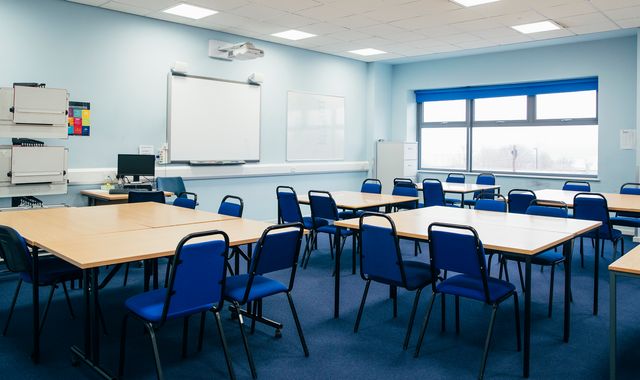Coronavirus: Why isn’t the UK closing down schools like other countries?
Written by News on 13/03/2020
Following Boris Johnson’s emergency COBRA meeting yesterday, some expected an announcement that UK schools would temporarily close.


But although the prime minister has warned that new measures to delay the coronavirus outbreak will cause “severe disruption across our country for many months”, he stressed these restrictions should not be introduced too early.
At present, schools will only close if they are specifically told so – such as if a student or staff member contracts COVID-19, the disease caused by the coronavirus.
The UK’s decision is markedly different to the response of other countries such as Ireland, Lithuania, Slovakia and Denmark, which all recently announced they would be temporarily shutting schools due to the virus outbreak.
This has attracted a mixed reaction – some scientists say the new measures don’t go far enough, while others say a “balanced” approach will help keep more people safe.
Mr Johnson says he is being guided by scientists – and at the news conference in Downing Street, he said that current advice suggests closing schools “could do more harm than good”.
Schools are being advised to cancel trips abroad, and children are included in the new advice that states anyone with coronavirus symptoms such as a continuous cough or a high temperature must stay at home for seven days – even if the symptoms are mild.
The prime minister added that “lines of defence” must be deployed at the right time to have the full effect, with the most dangerous period still believed to be weeks away.
He explained: “The most important task will be to protect our elderly and most vulnerable people during the peak weeks when there is the maximum risk of exposure to the disease and when the NHS will be under the most pressure.
“So the most dangerous period is not now but some weeks away depending on how fast it spreads.”
Mr Johnson has insisted the measures are right for the present phase of the pandemic.
Keith Neal, emeritus professor of the epidemiology of infectious diseases at the University of Nottingham, says closing schools could reduce the number of NHS workers available to fight the virus as people have to look after children.
He also said it could increase the risks for elderly grandparents, who could be asked to step in to help with childcare.
Another risk is that closing schools could lead to the increased movement of children to different places across the UK.
“Children do not seem to get serious illness with COVID-19 and we do not yet know what role they play in significantly spreading the virus,” he said.
Mr Neal warned the UK should not be pressured by the actions of other countries, saying: “Different countries are at different stages of the epidemic so what one country should do will not apply to others, we need to be guided by the local epidemiology and the science.
“The UK should adopt UK-appropriate measures and not give in to the demand for something to be done otherwise this will result in inappropriate actions at the wrong time.”
He added it is too soon to say whether the steps taken in Ireland were a “sensible precaution or an overreaction for the current stage of the epidemic”.
:: Listen to the Daily podcast on Apple Podcasts, Google Podcasts, Spotify, Spreaker
Dr Thomas House, an expert in mathematical statistics at the University of Manchester, echoed Mr Neal’s concerns about the risks to grandparents.
“If the closure is not carefully managed then children may spend more time with, and thereby increase the infection risk of their grandparents, who appear to be more vulnerable to complications from coronavirus,” he said.
Dr House said the decision to close schools was “difficult”, adding: “On the one hand, it helps to contain the spread of infection, but on the other it creates wider problems in society, like missing out on education.”
Jimmy Whitworth, professor of international public health at the London School of Hygiene and Tropical Medicine, said he was “sceptical” about closing schools.
He said: “I don’t see any convincing evidence that children are driving transmission here, and school closures would cause lots of social disruption.
“If it was part of a package of reducing gatherings, that would make more sense. But I wouldn’t target schools particularly.”
Professor Jonathan Ball, professor of molecular virology at the University of Nottingham, said government advice on self-isolation “doesn’t go far enough” – but did not mention whether schools should close.
He said: “There is emerging data that suggests that in as many of 70% of cases the infection will present with symptoms similar to a common cold; and given the high levels of virus replication observed in these patients, it wouldn’t be unreasonable to assume that they can easily transmit the virus.
“This is serious as it means that based on government advice – which specifies persistent cough and raised temperature – most people who can potentially transmit will not be aware the risk they pose to others and will not self-isolate.”
(c) Sky News 2020: Coronavirus: Why isn’t the UK closing down schools like other countries?






